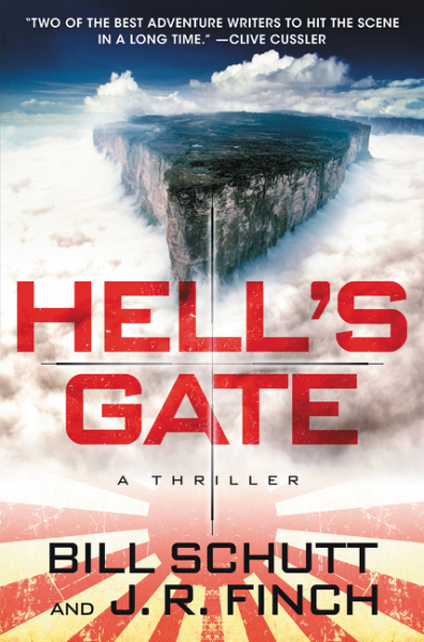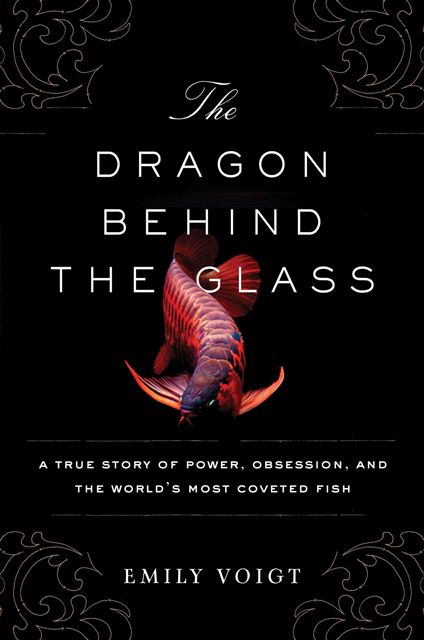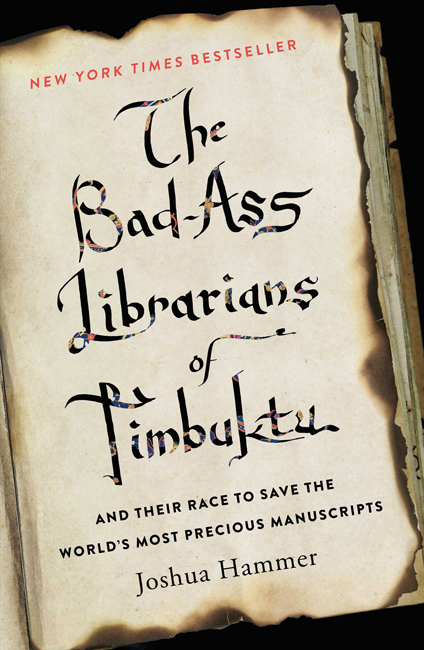When I chose my summer book picks this year, I wrote that nature books have never been this fun. That continues with my fall selections, but with a twist. For summer, I picked light-hearted (and scientifically rigorous) titles, perfect for relaxing at the beach.
As the weather turns cool, it’s time for some suspense: in this edition, I’ll review three titles that will keep you on the edge of your seat, with a conservation/science twist.
So pull up a chair, pick up one of these books – and be prepared for a sleepless night.
-
Hell’s Gate
by Bill Schutt and J.R. Finch (William Morrow)

One of the nature books I most frequently recommend to friends is Bill Schutt’s Dark Banquet: The Curious Lives of Blood-Feeding Creatures. Schutt is a zoologist who has done some astonishing research on vampire bats. He’s also one hell of a writer. As I read about vampire bats mimicking baby chicks to get close to hens, I had the thought that there had to be a novel here.
I’m happy that I was right. Schutt teams up with coauthor J. R. Finch for a biological thriller sent in central Brazil during World War II. The novel’s protagonist, R. J. Macready – an old school field biologist with a penchant for finding trouble – is sent to investigate a Nazi research station set deep in the forest. A forest, it turns out, that is home to all manner of frightful creatures – and, by the end of the book, a lot of people are going to be bitten, scratched and eaten by said creatures. I don’t want to give too much away but Schutt’s vampire bats are here, with a richly imagined twist.
It’s probably impossible not to compare MacReady to Indiana Jones, as many reviewers have, but I think readers of this blog will enjoy it for another reason: the attention to scientific detail. Flora and fauna, airplanes, biological weapons and more are all described in rich detail, and accurately. It is filled with scientific nuggets. In many novels, I find that such detail can detract from the plot. But in this novel, those details meld seamlessly into the suspense and violence of the main story.
The authors even include a section at the end that fact checks their own book! They include the factual, the hypothetical and the departures from reality. Even the most fanciful aspects of the book have a basis in science. Truly a biological nerd’s thriller.
However, this is not a read for the squeamish. By the last page, a long list of characters good and bad will meet very gruesome fates. If you don’t mind volumes of blood, though, don’t miss this one.
Schutt’s next book is a nonfiction work on cannibalism. I’ve already ordered my copy.
-
The Dragon Behind the Glass
by Emily Voigt (Scribner)

An obsession with fish? Journalist Emily Voigt finds this very idea baffling. Her interaction with finned creatures began and ended with a bowl of goldfish. When she first encounters someone using fishing lures, she expresses disbelief in the entire concept.
As an avid angler, I’ve long been drawn to fish. But I prefer to encounter them with hook and line, and have never had much interest in keeping fish. Voigt turns out to be the perfect guide to tropical fish hobbyists and their obsessions. Lacking fishy preconceptions, she digs deep into what drives aquarium enthusiasts to go to absurd (and often dangerous and illegal) lengths to procure desired specimens.
The focus of her book is the red arowana, an Asiatic species that is also one of the most coveted freshwater tropical fish of aquarium hobbyists. Critically endangered in the wild, the species now commands outrageous prices, fueling smuggling, theft and even murder. Some specimens have fetched upwards of $300,000.
Voigt delves into the subculture around the arowana, attending fish shows, hanging out with bizarre and unreliable characters and traveling to remote regions to search for the wild arowana. She’s an excellent journalist, embedding herself among people she doesn’t really understand, at first.
But as the book progresses, Voigt develops her own obsession with arowanas. Anyone familiar with the search for wild fish, for any reason, will relate.
-
The Bad-Ass Librarians of Timbuktu
by Joshua Hammer (Simon & Schuster)

Most conservationists and environmentalists I know talk a lot about making a difference in the world. They know all about frustrations and long odds. And there are successes, those moments when you think you might be changing things for the better. Just don’t compare yourself to Abdel Kader Haidara. Compared to what he’s done, well, you’re not worthy.
Haidara is a manuscript collector and curator in Timbuktu. Timbuktu is known in the West as a symbol of the remote, the uncharted, the exotic. The reality is it was a cultural center, home to many of the world’s greatest scholars. Islamic scholars wrote prolifically, producing books on science, philosophy, conflict resolution, romantic poetry and more. And these books were themselves works of art, often hand-produced with beautiful inlays. Each a priceless treasure.
Haidara led a renaissance in the collection and preservation of these manuscripts, leading to a series of libraries in Timbuktu – home to an incredible repository of ancient manuscripts, a cultural treasure to the world.
Then, in 2012, Al Qaeda militants stormed Timbuktu and much of Mali. They brought Sharia law and the violence familiar with anyone who watches the news. The manuscripts, while written by Islamic scholars, featured Islamic thought that did not mesh with Al Qaeda’s narrow interpretations. It appeared inevitable that the militants would destroy the manuscripts, something they had been all too willing to do elsewhere.
And so Haidara began a program to move the manuscripts out of Timbuktu to safety: a journey that required moving fragile, ancient books by road and by river, all the while avoiding exceedingly violent men. To be caught meant an almost-certain death sentence. And yet Haidara summoned help across the country.
He saved 300,000 manuscripts. That’s right: 300,000. The story of how he accomplished this is absolutely riveting. Hammer does a masterful job of telling the story. He covers the complicated story of Al Qaeda’s takeover in a way that reveals just how shallow and moronic our news coverage has become. It’s not a simple story. But it’s inspiring. Even against the most horrible of odds, one person can make a difference.




I know this book is at my library. I’d passed it by (in spite of it having the word “librarian” in the title) with scarcely a glance, thinking it another one of those shallow thriller-type adventures. Next time I won’t. Thanks for pointing out what I’m missing. Reading weather is just setting in, and the (locally sourced) firewood is finally stacked in the barn. Good to go.
Will fill my long, cold New York winters with a warm blanket, my cats and the above-mentioned reads, for the first time my thoughts won’t be crashing around my wilting tomato and pepper plants, nor the fading petals of my cherished roses. I am excited to begin and hopefully will fill these cold, lonely days and nights with these authors wonderful stories. Thanks so much!!